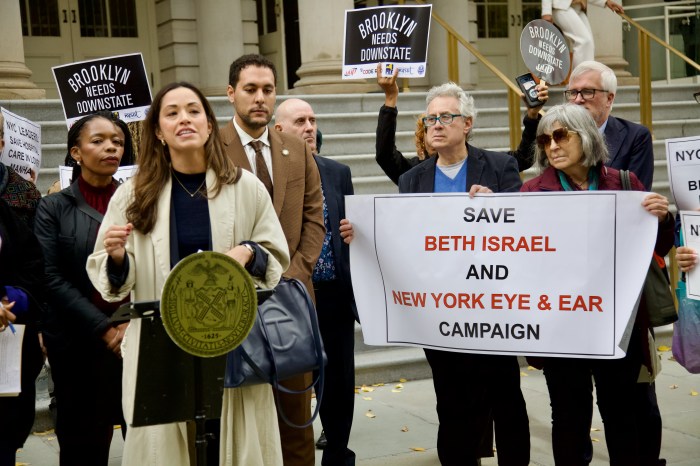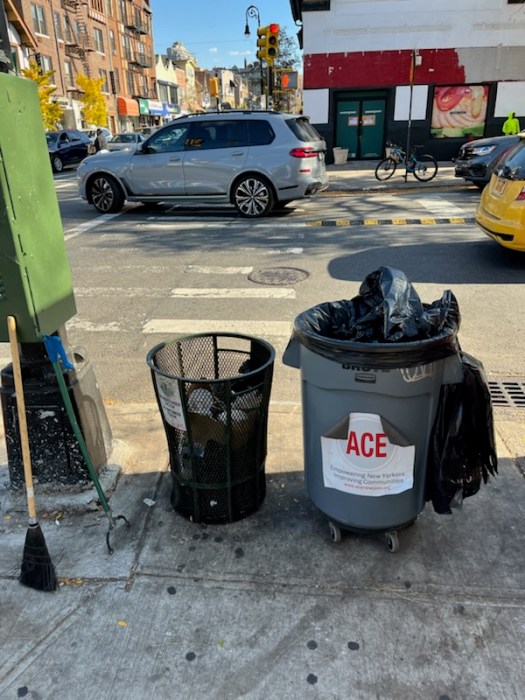From ways to fight age discrimination to installing elevators at more subway stations, “What New Yorkers 50+ Deserve,” released by AARP New York, is a groundbreaking and first-ever policy guide filled with recommendations to help city officials address these and other vital issues facing older New York City residents.
“This book is meant as a North Star—a model to help the new administration make sure that the needs of people 50-plus are met—because they are often overlooked,” said AARP New York State Director Beth Finkel. “They helped build our city and make it the great place that it is.”
“With this guide, the Mayor and everyone in city government can help New Yorkers 50-plus live their best lives,” Finkel added. “We’re talking about 750,000 New York City AARP members and who have suffered during the pandemic due to their vulnerability to the virus, housing costs and inadequate coordination of services among agencies.”
The 60-page policy book—the first-ever guide from AARP NY—contains 80 recommendations to improve life for the city’s residents, including empowering a deputy mayor to lead the charge to safeguard older residents and ensure they are aware of all services available to them. AARP staff created this blueprint because a clear and comprehensive plan for New York’s 50-plus was long overdue. The policy book also underscores that the New York City Department for the Aging receives less than one percent of the city budget when 20% of New York City residents are age 65 and older.
The book draws on AARP research and policy work, including “Disrupting Racial & Ethnic Disparities,” a series of policy briefs detailing substantial challenges faced by older New Yorkers.
Older adults are the driving force in New York City’s economy, cultural life and civic engagement. They account for the city’s biggest volunteer base and represent the largest voter turnout bloc. Yet they face significant hardships. For example, 78% of workers aged 40-65 say they have seen or experienced age discrimination in the workplace. More than half of city voters age 50-plus are concerned about affordable housing. A lack of accessible transportation has disproportionately affected 50-plus Black, Latino and Asian New Yorkers. And 42% of New Yorkers age 65-plus lack internet access—nearly double the 23% of those age 18 to 24.
Recommendations in the policy book include:
- Updating the city’s zoning codes and planning processes to require more affordable senior housing;
- Prohibiting online job application systems that require age information unless the employer can demonstrate need for that information;
- Renaming the Department for The Aging to reflect the vibrancy of New York’s older adults;
- Offering Human Resources Administration training so older adults can easily navigate and apply for the Supplemental Nutrition Assistance Program (SNAP);
- Expanding and improving zoning rules that allow the Metropolitan Transportation Authority to leverage private development to build elevators at more New York City Transit stations, and throughout Staten Island Railway, Long Island Railroad, and Metro-North stations;
- Devoting more pedestrian-friendly street space, building upon the successes of the Open Streets program;
- Expanding geriatric mental health services to every NYC Health + Hospitals facility.
- Establishing a New York City Caregiver Tax Credit for unpaid family caregivers, who often spend thousands of dollars a year caring for loved ones.
- Fully funding the City’s five-year Community Care Plan, which expands access to senior centers and aging-related services in underserved communities.
“What New Yorkers 50+ Deserve” is available online at www.aarp.org/nycpolicybook. AARP staff and volunteers will share hard copies of the book and meet with leaders across the city to discuss policy solutions and push for increased support and attention to the issues and recommendations outlined in the policy book.





































